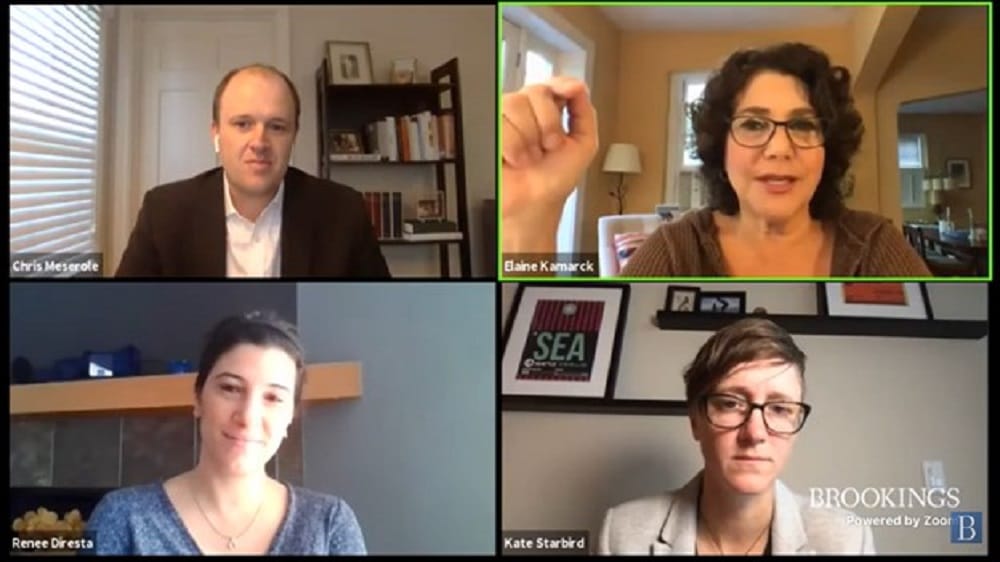Don’t Blame Russia for American Disinformation: The Cause is Domestic Political Polarization
October 6, 2020 – Starting in 2014, domestic forces—not just foreign forces—began to spread the idea that America was rigged against you, according to Renée DiResta, technical research manager at Stanford Internet Observatory. Everyone was a target, DiResta explained, speaking at a Friday webinar sp

October 6, 2020 – Starting in 2014, domestic forces—not just foreign forces—began to spread the idea that America was rigged against you, according to Renée DiResta, technical research manager at Stanford Internet Observatory.
Everyone was a target, DiResta explained, speaking at a Friday webinar sponsored by the Brookings Institution: “If you were a white person in the south, it was the statue debates, if you were an African American, it was systemic racism,” she said. “Football games, the stock market, the primaries, the polls, media—everything was rigged.”
Kate Starbird, associate professor in the department of Human Centered Design and Engineering at the University of Washington, shared a portion of her research on the Black Lives Matter versus the Blue Lives matter campaigns that took off in 2016. Russia, represented by orange lines in the below graph, only amplified existing polarization.

Starbird asserted that it was likely that in 2016, it was easier to problematize the Russian disinformation than our own.
“Disinformation is collaborative and participatory and networked—it’s not just something that’s happening to us. It’s something in some ways that we’re doing to ourselves.”
She also outlined disinformation trends. Information will come in from the margins of the internet, and flow out through influencers. It will also flow top-down in the form of disinformation from our own political leaders.
Elaine Kamarck, senior fellow in the Governance Studies program and director of a Brookings center, countered that it’s difficult to distinguish the country’s disinformation problems from the role the president plays
She said President Donald Trump lies a lot and buys into conspiracy theories. She projected that we probably won’t fully understand the role of top-down conspiracy theories until we’ve passed out of the Trump administration.
Starbird in turn argued that Trump having gained political power was more of a symptom of our environment than a cause. She pointed to India, Hungary, Brazil, and the Philippines, in which populous figures gained power using the media, a trend that points to a structural vulnerability.
She theorized that our information system supports populist leadership because leaders have direct access to their audiences through comment sections of social media.
Chris Meserole, fellow in foreign policy at Brookings and adjunct professor at Georgetown University moderated this session.








